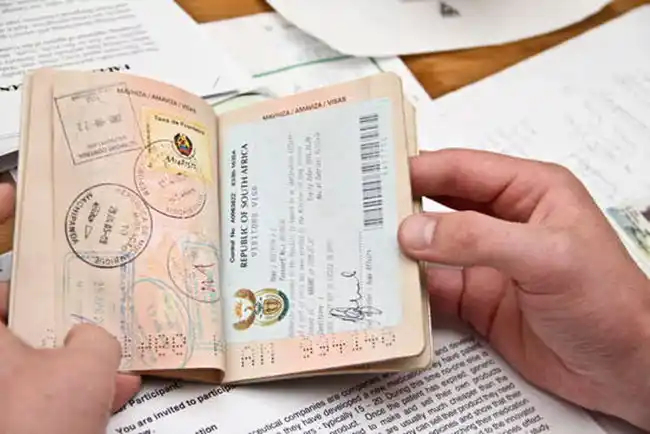
The All Truck Drivers Forum and Allied South Africa (ATDF-ASA) has successfully applied to intervene in the Helen Suzman Foundation’s (HSF) review of the government’s decision to terminate the Zimbabwe Exemption Permit (ZEP).
The Pretoria High Court last week heard applications from the ATDF-ASA and Operation Dudula to join the proceedings.
HSF’s case is set to be heard between 11 and 14 April this year, alongside two similar applications from the Zimbabwean Exemption Permit Holders Association and the Zimbabwean Immigration Federation.
ATDFSA and Operation Dudula sought to join proceedings to offer belated support for the government’s decision, which if upheld in April would spell disaster for 178,000 ZEP holders and their families.
Despite making headlines last month for lawlessly removing migrant children from their schools, Operation Dudula shamelessly described itself in its court papers as “a civil rights movement whose main objective is to fight crime and criminality using legal protests and court applications”.
For their part, Operation Dudula hoped to join April’s proceedings to argue that ZEP holders contribute to “the already dire situation of criminality” in South Africa.
ATDF-ASA used its application to peddle myths about migrants in South Africa, seeking to argue that the ZEP’s very existence contributes “to the proliferation of illegal undocumented drivers in the trucking industry”.
HSF opposed both applications for their lack of factual basis and their deliberate attempt at muddying the real issue before the court come April: that Minister of Home Affairs Aaron Motsoaledi terminated the ZEP without consulting its holders, nor measuring the decision’s impact on them or the South African society in which they have lawfully lived for more than a decade.
In a judgment delivered on 10 February 2023, Operation Dudula’s application to intervene was refused, but ATDFSA was allowed to make its voice heard in April’s proceedings.
“Operation Dudula’s claims about migrant criminality are easily debunked by the government’s own data. In response to parliamentary questioning, Minister of Justice Ronald Lamola said that in 2021, out of a prison population of 135,476, only 3,534 were foreign nationals – just 2.6%. And, these figures do not differentiate between documented or undocumented foreign nations nor do they specify their nationality,” writes Christopher Fisher, a lead researcher at HSF.
“In any event, it is very unlikely that ZEP holders would be among these numbers. The ZEP is the third iteration of a permit that first began as the Dispensation for Zimbabwe Permit (DZP) in 2009. In order to qualify for the DZP and its successor’s applicants had to present to Home Affairs with a clean criminal record. So, as unfounded as it is to believe that migrants in general drive South Africa’s crime rates, it is even less plausible to believe that ZEP holders do so,” he adds.
“ATDFSA’s argument that the ZEP incentivises illegal employment in the trucking industry does not fare much better – in fact it flounders on its own terms. In its application, ATDFSA points to a raft of legislation that it rightly claims prevents employers from hiring illegal foreigners – the Employment Equity Act, the Broad-based Economic Empowerment Act, the Employment Services Act and the Immigration Act. In the context of such overwhelming legal protection for South African workers from the undocumented competition, there is no need to scapegoat, as ATDFSA does, that small subset of legal migrants that are ZEP holders.”
“With unfounded populist claims like those of ATDFSA and Operation Dudula leaping out of South Africa’s deteriorating political dialogue and finding expression in our courtrooms, one may worry about how far incendiary anti-migrant sentiment in South Africa has come – and how far it can go, if left unopposed,” Fisher reiterated.





